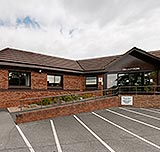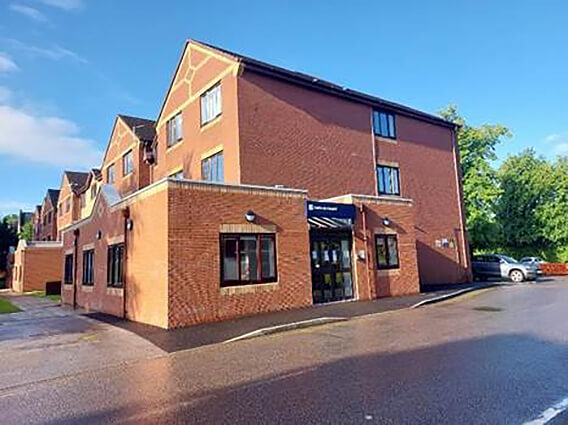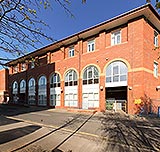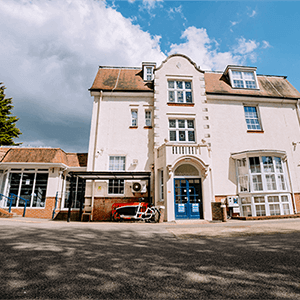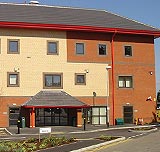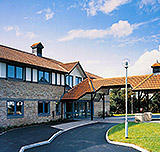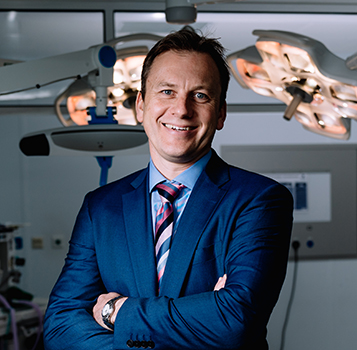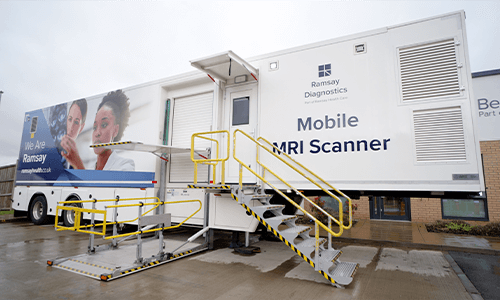
Summary
Knee replacement, also called a knee arthroplasty or arthroplasty of the knee, is knee surgery performed to replace the painful and worn surfaces inside your knee joint with artificial knee parts. These parts are made from metal, plastics, or ceramics.
Video Transcript
So with knee replacement surgery, we do it because the joint wears out and, we remove some of the bone from the joint and replace it with a piece of metal and the plastic between the 2.
Summary
Knee replacement surgery is often recommended if you have:
• debilitating pain from your knee artritis or injury that results in severely painful joints which is holding your life back. This may be down to mobility impairment, or ability to perform everyday tasks which is impacting your quality of life and quality of sleep.
• tried non-surgical treatments, such as non-steroidal anti-inflammatory drugs (NSAIDs), physiotherapy and injections but these have failed to make an impact in relieving your pain and help your movement.
Video Transcript
You will have knee replacement done, the operation done, due to various reasons. And most common reason why you will have a knee replacement is osteoarthritis, that is wear and tear of your joints. This wear and tear can happen due to aging process, could happen due to overuse. Sometimes it can happen if you had any injury and other conditions which are inflammatory, such as rheumatoid arthritis or other condition like that.
Summary
Video Transcript
Summary
One of the major advantages of seeing a knee surgeon privately is that you can choose your surgeon, your appointments and treatment can be arranged at times that suit you, without any unnecessary waiting. This is especially important if you’re in a lot of pain or if you want to avoid particular dates for surgery.
Video Transcript
Well, the main reason for me would be that I would be able to choose the consultant that I that I trust, an experienced consultant, and also the timeline is is much much quicker privately, and you can have your operation at a time that suits you.
Summary
A knee replacement consultation is an appointment with an orthopedic surgeon to determine whether you need a knee replacement and to discuss your treatment options. You will have a detailed discussion with your surgeon about your symptoms, how and when the pain started, how it affects your daily life, discuss your medical history and a treatment plan. Further imaging may be undertaken to form the diagnosis.
Video Transcript
You would come into the consultation room, you would have a discussion with your surgeon. The surgeon would ask you all the questions about your symptoms, about your aspirations, what what would you like to achieve after the operation. And then your consultant would examine your knee and then eventually have a conversation with you about the possible ways forward.
Summary
There are three main types of knee replacement operation: Total knee replacement surgery, partial knee replacement surgery, revision knee replacement surgery. Your knee surgeon will discuss the most appropriate surgery for you.
Video Transcript
There are two types of knee replacement. One is total knee replacement where we resurface all parts of the knee including the kneecap and the other type of knee replacement is only partial knee replacement where we resurface only 1/2 of the knee joint. What we will offer will depend on consultation, your symptoms and what we see on X-ray.
Summary
Before knee replacement surgery, your surgeon will provide a physical examination on the knee. An X-ray of your knee will be taken, in some cases an MRI might be required to get a more detailed image of your knee. As part of your pre-assesment, blood tests will be required and in some cases an ECG. If you have a special medical condition, additional tests may be required.
Video Transcript
Before knee replacement surgery you will have a physical examination, you will have an X-ray or some other imaging modality and in your pre assessment you will have blood tests, ECG and if you have any special medical condition then you will have other tests on top of that.
Summary
You’ll be placed under anaesthetic during your knee replacement surgery to stop you from feeling any pain. After the operation, you can expect to feel some pain and you’ll have some swelling and bruising in and around your knee. Every patient is different, but you can expect it to take up to three months for the pain and swelling to settle down.
Video Transcript
Pain is a very subjective thing, some people feel more pain after the same procedure than others. A partial knee replacement will be a lot less painful than a total knee replacement. Usually the first night is the most difficult one, then the anaesthetic wears off and then the pain tends to to improve after that.
Summary
After your knee replacement procedure, you’ll need to stay with us in the hospital until we’re confident you’re ready to go home, this is usually for one day. How long you stay will depend upon your surgery and your condition.
Video Transcript
Regarding the overall stay, it used to be several days stay early days, but now with all new technologies and enhanced recoveries, typically a patient is in the hospital just one night overnight. So you are admitted on the day of the surgery in the morning and after having your procedure done you might have already first physio by the evening and the next day you have a bit of more physio, some cheques, X-ray and if didn't fit enough you'll be discharged home.
Summary
To boost your chances of having a successful knee replacement operation and a good recovery, you should take steps to make sure you’re in a healthy condition before the procedure such as being as active and fit as you can be with low impact exercise, eating a balanced diet, do your best to lose excess weight. You should also make practical preperations suchy as understanding your surgery and what will be required in your recovery, remove all trip hazards from your home and ask for suppport from family members and/or friends beforehand, as your mobility maybe limited after your operation.
Video Transcript
The one of the most important things is that you keep the joint mobile so you can do exercise that doesn't upset the knee, doesn't make it swollen, doesn't make it painful. Then you want to eat healthy food and keep fit in general.
Summary
It is important to ask the right questions before your knee replacement surgery to help you feel informed and prepared. You will want to ask what could you do before surgery to improve your outcome, should you stop any medications, how will your mobility expected to be following surgery.
Video Transcript
Well, before your knee replacement surgery, you want to know what you can expect from it in your situation. How much pain relief I can expect, how my mobility will be after the operation, and what risks are involved?
Summary
A knee replacement typically lasts 15 to 25 years, depending on several factors such as the type of implant, activity level, weight, and overall joint health.
Video Transcript
Knee replacements last on average statistically for about 20 years in 90% of the cases.
The heavier you are, the the younger you are. More active you are, the shorter the lifespan.
Summary
Physiotherapy starts on the day of the surgery. One of our physiotherapists will help you get out of bed and stand using a walking aid, like crutches or a walking frame. They will also explain and demonstrate exercises you can do at home to help strengthen your knee and aid your knee replacement recovery. They can offer advice about everyday living and what you should and shouldn’t do.
Video Transcript
So physiotherapist starts on the day of the surgery. Physiotherapists actually see you before the operation and they will come and see you once the anaesthetic has worn off and get you out of bed and get you walking.
Summary
At Ramsay, we know a speedy recovery is vital. Aftercare is a valuable part of the service we provide, and we aim to get you back to normal life as soon as we can. After knee replacement surgery, you’ll need to exercise, as advised by a physiotherapist. Your physiotherapist will see you on the day of your surgery and explain the process for physiotherapy following surgery. Our team will be on hand if you have any questions following your surgery, generally you will see a nurse after 10 days for your stiches removed and your surgeon usually sees you six weeks and six months post surgery.
Video Transcript
Our physiotherapy team will make sure that you're not leaving the hospital until you are self-sufficient in terms of mobility and you know how to walk on stairs. We are obviously available anytime if you call back with any concerns or problems. Generally you will come to see a nurse in 10 days. For stitch removal you will be booked for more physio session. Afterwards, you will see your consultant in six weeks and six months before being discharged.
Summary
Most people can kneel around three months after their surgery when the scar tissue has healed enough. Many will be able to do so without any discomfort once they’ve fully recovered, while others may find it uncomfortable due to pressure being exerted onto the scar. a pillow, a cushion, or knee pads can make kneeling more comfortable.
Video Transcript
You can kneel after a knee replacement, not immediately. I would refrain from kneeling completely first couple of months and then It is not advisable to kneel on hard surfaces for a long period of time anyway. But if you need to fix something under your sink, or pick something up, or shortly weed your garden, you can do that. And it's always a good idea to put a pillow on you.
Summary
How fast you can return to driving after knee replacement surgery will vary by patient and depends on how well you recover and respond to the operation. It will also depend on whether you drive an automatic or manual, and which knee was operated on.
Video Transcript
You can drive once you feel safe and you can do an emergency brake. That is if your right leg was operated on. If you have an automatic and you had your left knee operated on, then you can drive pretty much whenever you feel comfortable sitting in a car.
Summary
The time it takes to walk after a knee replacement will vary from person to person. You’ll be encouraged to stand and walk while in the hospital, usually from day one, with the help of a walking aid, like crutches or a frame. Most patients can walk with a walking aid within a week or less after the operation.
Video Transcript
After a knee replacement, you will be walking either the same day or the following day and you will be able to do stairs as well before you go home.
Summary
It often takes around one year to fully recover after a total knee replacement. Most patients can walk without a crutch or walker by around six weeks and are mostly free of pain and swelling by 12 weeks.
Video Transcript
Recovery wise, the first main healing is about six weeks, It's obviously very individual. We have patients up and running in three weeks, we have patients still gradually getting rid of crutches within two months. But after six weeks in average people are starting driving cars, going back to work and so on, living normal life. Having said that, it will be still fresh with uncomfortable bit swollen and it will improve in terms of half a year, a year, but you need to expect about six weeks before you will have a normal quality of life.
Summary
Although most people can return to their usual activities once fully recovered, high-impact exercises and contact sports may no longer be possible after a knee replacement.
Video Transcript
A knee replacement is done for you to enjoy your life, to get back to full function if you can. Therefore, generally I don't put any restriction on to what you can't do, but I mentioned that any impact exercises can damage the knee earlier on.
Summary
Most people do not need to return for additional surgery after a knee replacement for many years, if at all. However, follow-up visits with your orthopedic surgeon are important to monitor your knee and address any concerns.
Video Transcript
Not necessarily, if you have done very well after total knee replacement then you don't need to come back and see us. You come back and see us only when if you have any problem.









